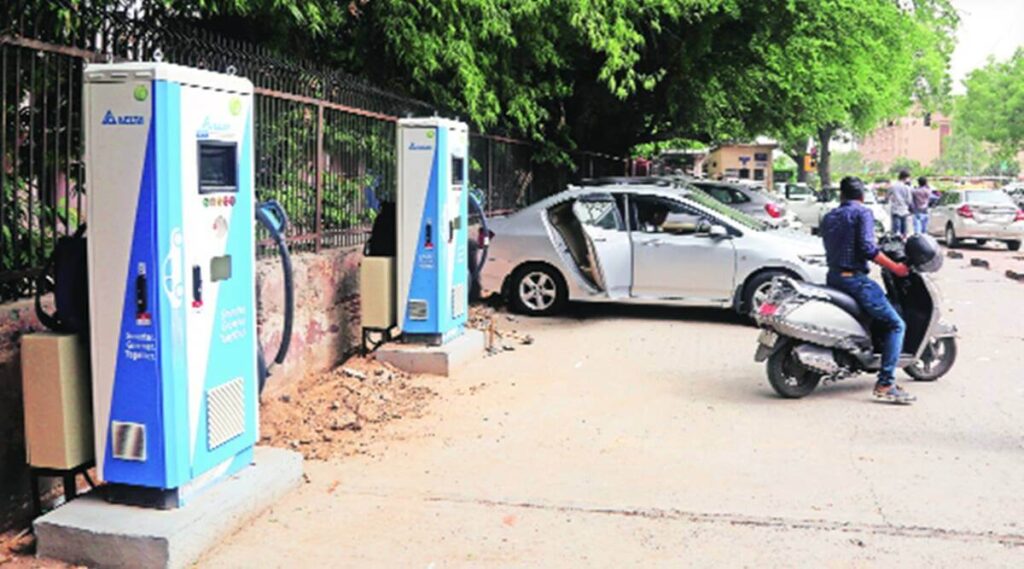Solar businesses are now investing in the EV charging industry due to the rise in popularity of electric vehicles and the corresponding need for charging infrastructure. This presents a chance for these businesses to not just offer clean energy for EVs, but also broaden their sources of income and take advantage of the financial rewards of investing in EV charging.
The trend is motivated by several elements, such as government incentives, the unification of renewable energy and EV charging, and the potential for future growth in the EV market. Consequently, a lot of solar businesses are investing in EV charging stations and offering solutions that incorporate renewable energy and EV charging.
Let us briefly look into some of the reasons for solar businesses are choosing to invest in EV Charging business:
Why solar businesses are choosing to invest in EV Charging business?
1. Demand of EVs and hence the need of charging infrastructure has increased
Over the past few years, the use of electric vehicles has seen a substantial rise due to various factors including government incentives, improved battery technology, and a growing desire among consumers for more environmentally friendly transportation options.
With the rise in the number of EVs being used, the demand for charging infrastructure to support them also increases. Charging EVs necessitates a dependable and accessible network of charging stations, and this creates a chance for businesses to invest in the EV charging industry. The escalating popularity of EVs is thereby boosting the demand for charging infrastructure and creating a requirement for additional charging stations.

For solar companies, investing in the EV charging industry offers an opportunity to supply clean energy for charging EVs, which fits with their objective of advancing sustainable energy solutions. By participating in the EV charging market, solar businesses can contribute to satisfying the expanding demand for EVs and charging infrastructure while also increasing their income sources.
2. Solar energy can be integrated with EV charging
Combine the benefits of solar energy and EV charging by using solar power to recharge EVs, reducing reliance on grid-generated electricity. Solar energy can fuel EV charging stations, allowing electric vehicles to charge with renewable and green energy.
Using solar energy to charge EVs decreases dependence on traditional fossil fuels, thus lowering the carbon footprint of the transportation industry. The cost of charging EVs is also reduced as solar energy is generally less expensive than grid-generated electricity. Furthermore, utilizing solar energy as a source of power for EV charging ensures a dependable energy supply, even in regions where grid-generated electricity is inconsistent or inaccessible. Anticipate great success in the future as green technology receives increasing importance, and the current integration of solar energy and EV charging continues to grow.
3. It comes with lot of financial benefits
Investing in EV charging presents numerous financial advantages for solar businesses. A prime advantage is the opportunity to generate revenue from EV charging stations through multiple sources, such as electricity sales, EV charging station usage fees, and other secondary income sources like advertising and sponsorship. With the increased demand for EV in Indian roads the benefits can also scale along with it.

Another financial advantage of investing in EV charging is the assessment of costs and returns in comparison to conventional solar projects. Although the initial investment in an EV charging station may be more expensive than a traditional solar project, the potential returns can also be greater. This is because EV charging stations offer a reliable source of income and can provide additional revenue through various sources.
4. Government Incentives for EV Charging and Renewable Energy
The Indian government has implemented initiatives to encourage the growth of electric vehicles (EVs) and renewable energy sources. These policies aim to increase the use of EVs and clean energy, reduce reliance on fossil fuels, and contribute to a greener and more sustainable energy mix.
The FAME India Scheme that provides incentives for EV purchase and the Indian government provides tax benefits for individuals and businesses that buy EVs, as well as for companies that invest in EV charging station development. The Indian government prioritizes EV charging and renewable energy projects in procurement processes, boosting the exposure and feasibility of these ventures.
It also provides subsidies for solar businesses. The central government of India provides a subsidy of 30% for general category states for solar systems, while special states like Uttarakhand, Sikkim, Himachal Pradesh, Jammu & Kashmir, and Lakshadweep receive a subsidy of up to 70% from the central government.
5. Future scope of EV market
With the aim to achieve zero emission targets the adoption of EVs are increasing slowly. Many car manufactures are also investing in charging infrastructures to support EV adoption. Forecast predicts substantial growth in the EV charging market in the upcoming years as electric vehicle ownership continues to increase. This growth in EVs will lead to an increased need for EV charging infrastructure, necessitating more charging stations.
Predictions anticipate rapid growth in the EV charging market due to advancements in battery technology, increased accessibility of EVs, and government initiatives promoting EV adoption and the use of clean energy. Thus, companies investing in EV charging can anticipate taking advantage of the growing demand for charging stations and the immense growth prospects in the EV market.



